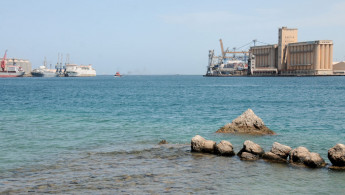Far from fighting, doctor strikes aggravate healthcare collapse in Port Sudan
The army-controlled coastal city of Port Sudan has become a refuge from the war raging to the west, but its health system is in near collapse due to power cuts and scarce supplies - and staff shortages now exacerbated by striking doctors.
Doctors and nurses in the Red Sea city say they have not been paid for four months, as the Sudanese government's budget has been decimated by fighting between the army and the paramilitary Rapid Support Forces (RSF).
"It is exhausting, there are many patients and there's a lot of suffering," said Omar al-Saeed, a striking nurse at Port Sudan teaching hospital.
"We only demand they just pay people something small so that they can keep going."
War broke out in April, four years after the overthrow of former President Omar al-Bashir during a popular uprising. Tensions between the army and the RSF, which jointly staged a coup in 2021, erupted over disagreements about a plan to transition to civilian rule.
According to the UN, more than 100,000 have fled to Port Sudan, filling up the already dense city's hospitals and shelters, while fighting is focused in Khartoum and the west of the country.
United Nations aid chief Martin Griffiths has warned that the war was fueling "a humanitarian emergency of epic proportions" in Sudan and that several diseases, including malaria, measles, and dengue fever, were on the rise.
Sudanese hospitals have long been under-funded, and strikes by medical staff have been frequent. The war, during which many hospitals in areas of fighting have been damaged, has brought the system to its knees.
Doctors in Port Sudan have had to grapple with power cuts, intense humidity and medicine shortages, while patients are kept in close confines though many have respiratory illnesses, hospital officials say.
"We are in a crisis, we pray that God eases it on us," says Ayat Mohamed, supervisor at Dar Abnaa Al-Shamal medical centre, which is dealing with overflow from hospitals with striking staff.
(Reuters)





 Follow the Middle East's top stories in English at The New Arab on Google News
Follow the Middle East's top stories in English at The New Arab on Google News


